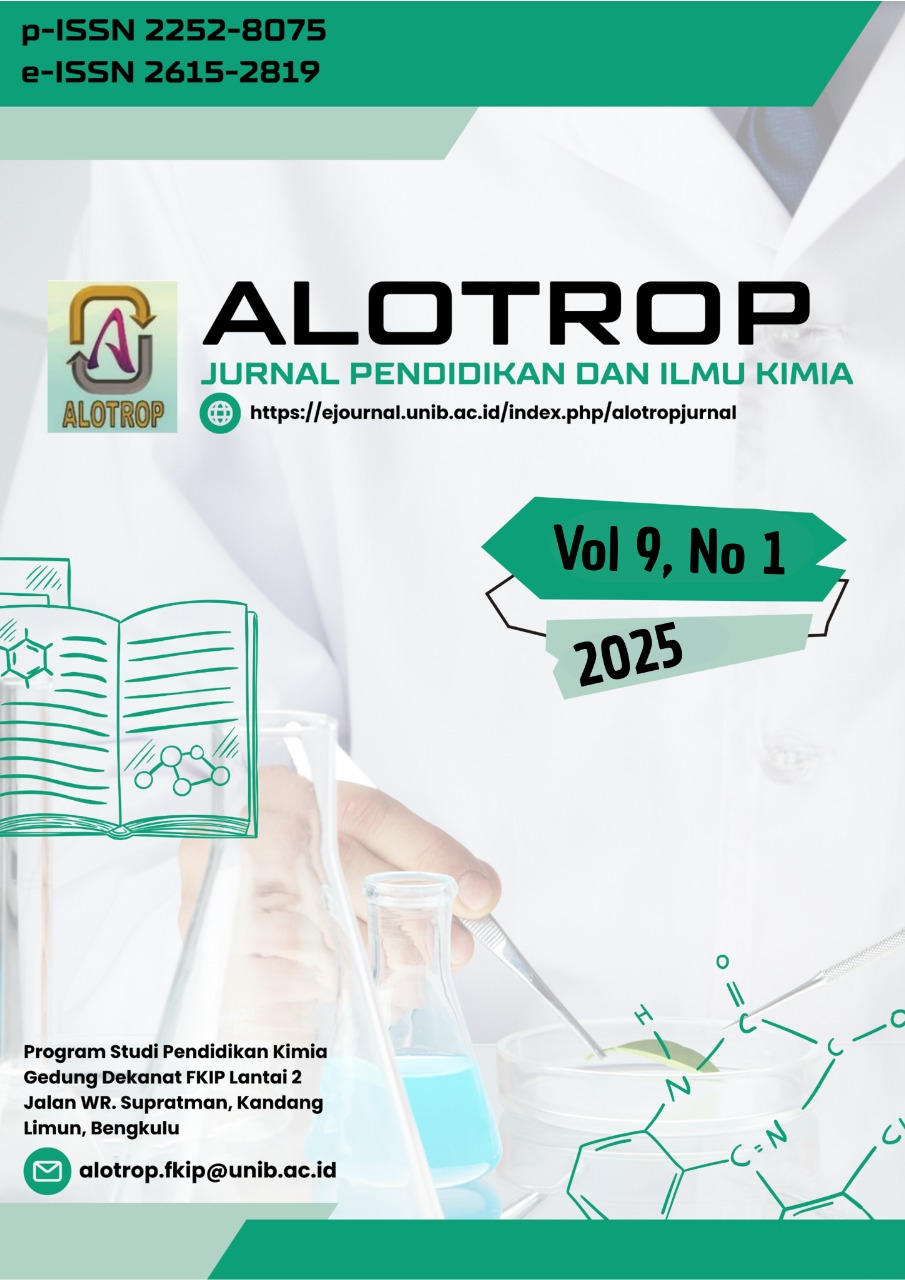Main Article Content
Abstract
Students generally have difficulty understanding chemistry learning material on acid-base titrations. Learning is still teacher-centered and there is little student activity in playing a role in the learning process. Objective: to discover science process skills and the value of guided inquiry-based acid-base titration practical reports. Method: quantitative descriptive, class XI MIPA 1 MAN 11 South Jakarta. The sample was 34 students using purposive random sampling. Data were collected using a 23-item questionnaire from indicators of science process skills in practical acid-base titration material and practical report grades. Research results: the implementation of guided inquiry-based acid-base titration practical learning showed good results. The average final score for students' practicum report results was 86.941, the standard deviation was 4.313. This indicates that the Minimum Completeness Criteria (KKM) set by the school of 80 has been achieved. The highest percentage of science process skills in the observing indicator is 82.6%. And the indicators of grouping, predicting, hypothesizing, applying concepts, interpreting, planning experiments, and using tools are categorized as good. Meanwhile, 2 other indicators are in the sufficient category, namely the indicator of asking questions 53.8% and communicating 60.6%. Conclusion: An acid-base titration practicum using the guided inquiry learning model can improve learning outcomes and develop students' science process skills.
Keywords: Guided Inquiry; Science Process Skills; Practicum Report Value; Practicum.
Article Details
Copyright (c) 2025 Dewi Linda Ardianti, Siti Suryaningsih, Tuti Janatun

This work is licensed under a Creative Commons Attribution-ShareAlike 4.0 International License.
Authors who publish with this journal agree with the following terms:
- Authors retain copyright and grant the journal right of first publication with the work simultaneously licensed under a Creative Commons Attribution License that allows others to share the work with an acknowledgment of the work's authorship and initial publication in this journal.
- Authors are able to enter into separate, additional contractual arrangements for the non-exclusive distribution of the journal's published version of the work (e.g., post it to an institutional repository or publish it in a book), with an acknowledgment of its initial publication in this journal.
- Authors are permitted and encouraged to post their work online (e.g., in institutional repositories or on their website) prior to and during the submission process, as it can lead to productive exchanges, as well as earlier and greater citation of published work (See The Effect of Open Access).
- This work is licensed under a Creative Commons Attribution-ShareAlike 4.0 International License.
